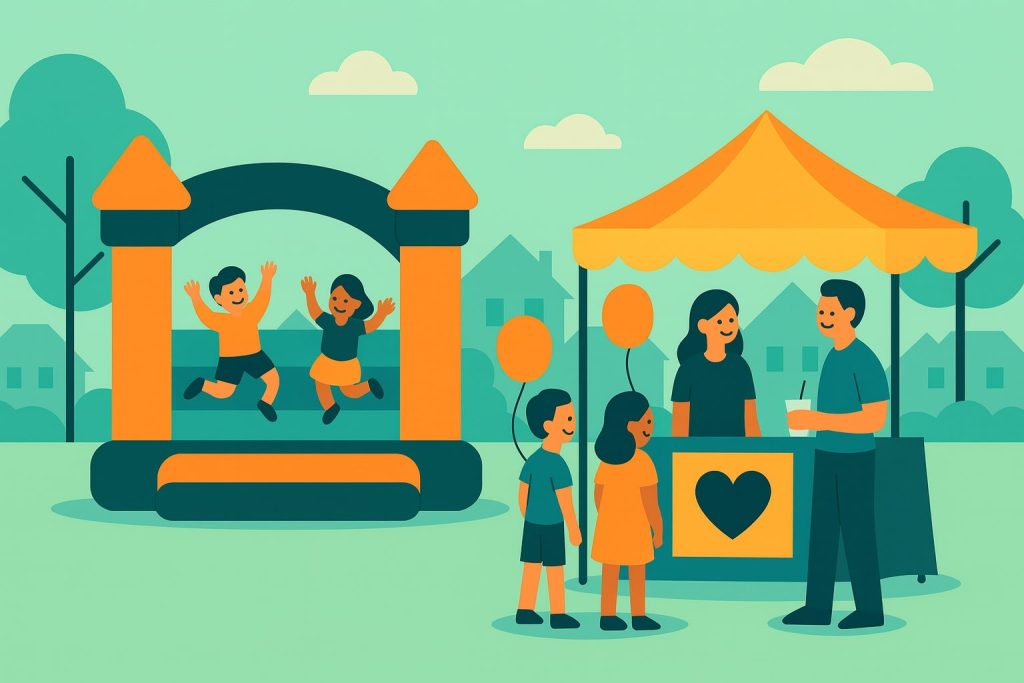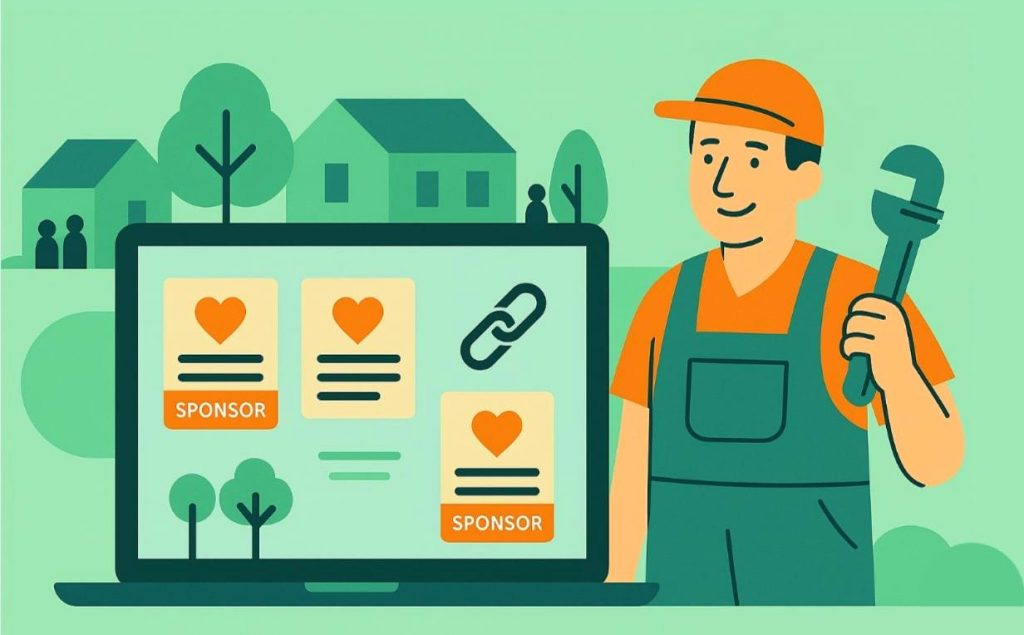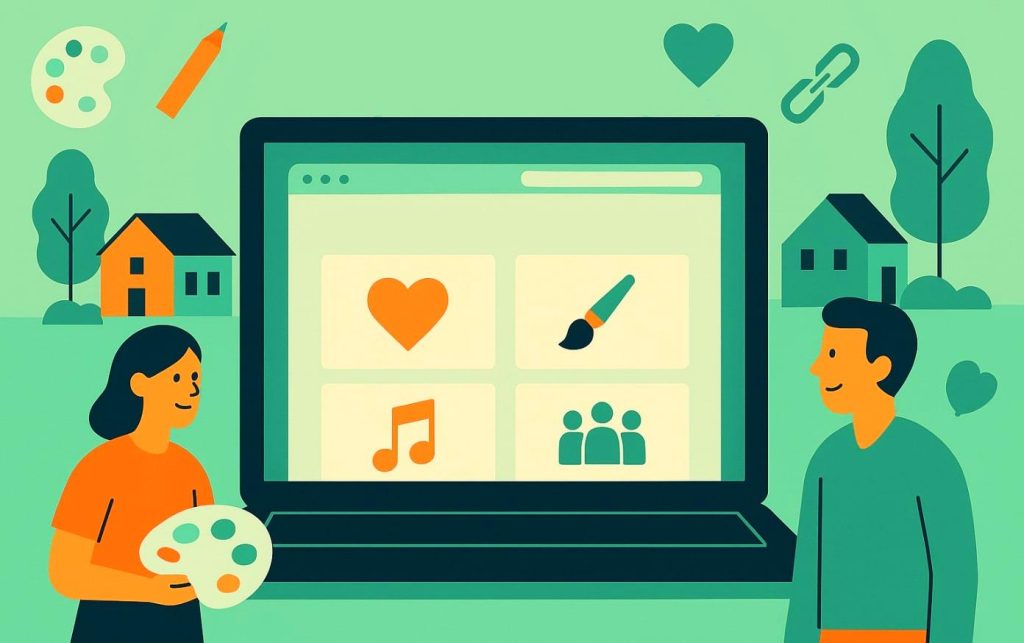The Zip episode 37
So heads up – this episode of The Zip has a fair share of acronyms. For example, AMP, JSON, PWA, iOS and even …MTV.
But sometimes the message is worth a bit of jargon, and that’s certainly the case with today’s guest, Cindy Krum. Cindy is the founder and CEO of MobileMoxie, a mobile web consultancy, and a frequent speaker at search and tech events.
I saw Cindy speak at MozCon local AND EngagePDX, and I just. had. to. interview. her. Perhaps more than any other presentations I’ve seen in the past few months, Cindy’s speak to the future. She’s been doing mobile SEO since before the iPhone, if that gives you a sense of how prescient Cindy is. She sees what’s coming.
And that’s what we’ll dive into today, because the acronyms, as complex as they are, stand for a push toward simplicity. The giants of the Internet, and Google in particular, are turning the web from a network of URLs into a space where human questions result in human-like answers. As Cindy mentions, Google is working to take the developer out of the way.
But there are consequences for this – when everyone controls the Internet, the Internet is a messy, funky, weird place. Think Myspace circa 2006. But when one entity controls the Internet – we get good user experience, we get a clean interface, but we also get a closed web, a space in which newcomers better play by the rules, or else.
We don’t delve too much into the consequences in this conversation, but if you’re interested, I’d recommend checking out my interview with Doc Searls from a few weeks ago, or even last week’s conversation with Joy Hawkins. Businesses have to play by Google’s rules, and those who don’t, or don’t know how, or can’t afford the time or employees to learn how, are getting left behind.
But today, let’s forget about the consequences for a second, and soak in the excitement of a future where the web speaks human.
And just to illustrate, Google herself will make a, let’s call it an appearance, in this conversation. So pay attention for that.
Welcome to The Zip – a podcast on the ecosystem of local, brought to you by ZipSprout.com.
Megan Hannay:
How are you? Thank you so much for giving me time to pick your brain today.
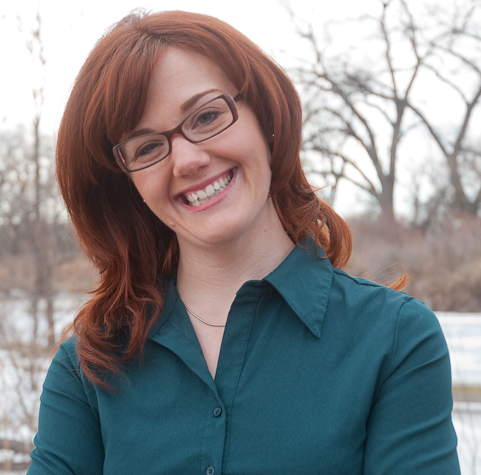 Cindy Krum:
Cindy Krum:
Fine, yeah. No problem. Yeah, I’m excited to do it.
Megan Hannay:
Awesome. All right. I will hop right in because you said you have a busy schedule. First, Cindy, I would like to learn a bit more about you. I know you founded Mobile Moxie about eight years ago, which is a tool and consulting business with the goal of improving your clients’ mobile web offerings. Can you tell me a bit more about Mobile Moxie and what about mobile search piqued your interest enough to start an agency?
Cindy Krum:
Sure. Mobile Moxie is a small expert consultancy. I wouldn’t call it an agency. We just have a small group of experts who work directly with companies. We don’t have account managers or anything like that, but we just get deeply integrated with other people’s teams. That ends up being a lot of fun for us. It’s been that way since I started the company in 2008. For a long time, it was just me, and now we’ve branched out just a little bit more with a couple more consultants. We focus on not just web mobile SEO, but also app SEO and optimization.
Then, we also have tools that are starting to get a lot of traction because they do a really great job of emulating mobile search results that are location and language aware. We can say, in this zip code, do a search on this particular handset for this, and you can even see what it looks like on multiple phones at a time. That’s really important for local businesses to know, for instance, if I’m searching within two miles of the restaurant, is it actually coming up? Is it looking different on iPhone versus Android? Or is it looking different on this particular iPhone or this particular Android? That definitely happens.
Megan Hannay:
It simulates that experience for them so they can make sure everything looks good across the board, essentially.
Cindy Krum:
Yep. I need to find the right way to describe it, because it’s actually not a simulation, because simulation would imply some kind of synthetic test, but it’s actually a real result that Google would serve.
Megan Hannay:
Oh, cool. It’s just sending what they would find if they have that device.
Cindy Krum:
Exactly.
Megan Hannay:
2008, that was right when I think the first iPhone came out. What about that, the very beginnings of mobile made you say, this is something I really want to jump into?
Cindy Krum:
I actually got started in mobile before I started the company. I was doing it for a small agency. That was in 2005. I’ve been doing mobile SEO since before the iPhone. We were doing it for BlackBerry and stuff like that. At that time, everyone had BlackBerrys and they were on them all the time. The search results were so bad, and they looked really different from what we were seeing on desktop, but no one was explaining why or how something would be in one result but not the other. There was just no clarity on it.
I just started researching it and found out a lot of different things, that developers were doing things differently on mobile. Developers who were doing mobile had no idea that mobile SEO even existed. It was the wild, wild West. It was fun.
Megan Hannay:
You were like, this is a big space, obviously. It’s grown so much since 2008. You’ve worked with clients, I saw on your website, from MTV to the Whether Channel and Kayak.com. Those are some huge organizations. What do you see as a common thread among enterprise clients like these? What are they still missing when it comes to mobile?
Cindy Krum:
Let’s see. Enterprise clients, when they have this many websites and pages that they’re managing, they’re not as nimble as smaller companies, and they have a lot of legacy content just in general, enterprise clients. A problem, I would say, with almost every enterprise client we’ve ever worked with is lots of legacy code. Lots of different teams doing different things and not efficiently talking to each other, which more and more is becoming important between building an Android app and an iOS app and having that match up for deep linking on the website. The biggest problem is the teams not talking to each other and then, Google’s recommendation for mobile has changed essentially every three years for the past nine years.
Megan Hannay:
That’s a lot to keep up with.
Cindy Krum:
Three years is about one development cycle for some big enterprise companies to get everyone from ignoring mobile to having an m.dot. Then, getting everyone from having an m.dot to being responsive, and now we’re all looking at getting everyone from responsive to potentially PWAs. Or going at least to more selective and dynamic situations. There was for a while, when Google was supporting m.dot, they said, do alternate canonical. That solves everything. Then, they said, no, go responsive. You don’t need to have duplicate of everything on your site. Now, they’re back to saying, what about AMP, though? If you did AMP—so, we’re back to duplicating.
Megan Hannay:
It’s like they’re still making up their mind in a way, and probably some of these companies feel a bit like it keeps changing them.
Cindy Krum:
Yeah. It keeps changing and everyone. It’s not that Google’s making up their mind, it’s that the technology is changing faster than anyone can really keep up with. Now, Google’s talking about, Google did the mobile friendly update with Mobilegeddon a couple of years ago. Now, mobile first indexing, which has gotten a lot of people nervous.
Megan Hannay:
Yeah. You presented at MozCon Local, which I saw, and I loved presentation. You talked about some of this. In some ways, your presentation, it felt like so much information. It sat with me for weeks. It really informed a lot of my thinking around the future of search and how mobile was integrated into that. So, thank you again for that great presentation.
To dive in, one of the big points you made was that the future of search, specifically mobile search, may be a web that doesn’t have URLs anymore. I feel like this is such an abstract concept, but to illustrate this, you asked people to just Google on their phone “cat sound” or “horse sound” and what pops up is a file that plays that sound. It’s not coming from any particular website. It’s just there. Can you talk a bit about that illustration? Which is kind of fun, but maybe not hugely useful in and of itself unless you have someone interested animal sounds, but what does that example say about what the future of search might look like?
Cindy Krum:
Sure. The idea is that, I think, in mobile first indexing, it’s not going to be that URLs don’t matter. It’s going to be that URLs aren’t required. The reason I say that is because of all of the movement that we’ve seen in the past couple of years that Google’s done with indexing app content, and apps don’t have URLs, and Google’s also been pushing really hard on things like Google Home and Firebase. Firebase is their app platform where you can put your iOS app, your Android app, and your PWA, your progressive web app all together and map them to each other there, and you can use that to create what they call dynamic links, which is one link that will reference all three of those. It will reference all three of them at the same piece of content.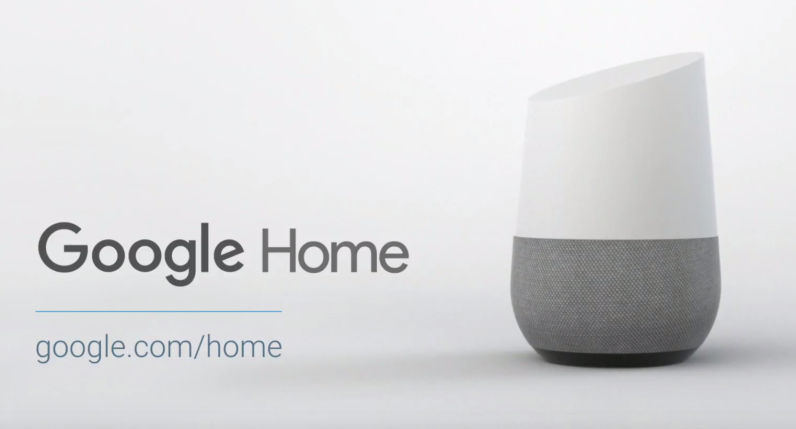
It’s basically, we’re getting away from, this lives here, that lives there, and that lives there to, this is our piece of content. View it wherever you want. With that in mind, we don’t have to have URLs, and in fact, when we talk about things like Google Home, that doesn’t have a browser. What would it do with a URL? The URL doesn’t matter. Google’s, I think, getting away from the reliance on URLs as the only potential unique identifier. In instances where they don’t have a URL but they need something to show in a browser, they’ll use these dynamic short links that they’re creating in Firebase to get people to the content that they need.
It’s almost like they’re putting their money where their mouth is, because it’s really the content that matters and the content can be shown here, here, or here, but they don’t want necessarily the way you’re viewing the content to interfere with its ability to rank or be shown as the right answer if it’s the right answer. With the cow sound example that I do, what’s interesting there, and what’s interesting if you’ve played with the Google Home is, it gives you only one answer, often. That is the answer. The question for us now as SEOs is, how do we become the canonical answer? Because I could question Google’s assessment of a cow sound or a cat sound and say, that’s not what my cat sounds like. They haven’t even given you that ability. If you don’t take answer number one or answer zero, position zero, then you can’t at this point have that conversation and drill down.
Now, maybe in the future, you could. For instance, in that talk, I give an example with using Google Assistant, which is essentially, Google Assistant and Google Home are very similar. Google Assistant is on your Pixel phone, and you can add it now to any other phone. If you ask it a question like, what’s the weather in Denver? It will tell you, and then it will give you suggested follow up queries. They do that based on the massive amount of data that they’re getting from search results of what did people search for after they searched for this? Or when people ask this question, what do they normally want to know next?
For the weather, people want to know today and then they might want to know, they give you the answer, do you want to know tomorrow or do you want to know the weekend? Or something else. Or do you want to see it hourly? Or something like that. Rather than asking again, you just click. I feel like that’s very much conversational, where any of the browser devices that’s Google’s trying to surface answers on could easily do that all with voice commands. Rather than you having to click, it could tell you today’s weather and then say, do you want to know tomorrow or do you want to know next week or whatever?
The need to have clickable links goes down completely, especially when we don’t need URLs. It’s more about AI.
Megan Hannay:
Yeah. That’s so neat, because I feel like we’ve just gotten over the past 20 or so years, used to URLs. It’s just part of typing in theweatherchannel.com into your browser to find out the weather. It’s like, that’s not really people speak. That’s computer speak that we’ve built into people speak because we’ve gotten so used to that being the way you have to interact with computers, but it might not be anymore. In a blog post you wrote about this, you explained that if you make an analogy between the Internet and our brains, it’s like, what’s visible online, websites and URLs, is analogous to what’s in our conscious minds, but that there’s so much information in our subconscious mind and our unconscious minds. So many things happening in the background processes. You explained that it’s the same with the Internet, that there’s so much happening in the background that you and I as people, we’re not going to see visually on our screens as content. What are some of these processes? What’s going on in the background of the Internet?
Cindy Krum:
There are massive databases that help run the world that live on the Internet but don’t surface because they don’t have URLs, but might be interesting. Or there are things that are databases that are private that we might not want everyone to know but we might want my devices to know. For instance, I don’t want everyone, if I’m using some fitness tracker, I don’t want everyone in the world to have access to know what I ate yesterday and if I ran or not and what I weigh, but I would want to be able to query my Google Home or my Google Assistant and be like, how many calories did I eat yesterday? Oh, okay. I can have this cupcake, or whatever. That’s all stuff that could or does in many instances live online right now. For instance, lots of the apps that people use to track and measure their life, which is so popular now, the database of their content doesn’t necessarily live on the phone. It might live online because things like your Fitbit, you can go onto the website, challenge your friend, whatever. That’s because the data lives online and it’s there anyway. It’s just not surfacing in a search result.
There’s this interesting interplay of, yeah, there’s a lot of data online, but some it may be private for a reason. Or some of it may not have URLs because no one ever wanted it to surface. Then, some of it, we might want to surface. For instance, in a big data frame of mind, big data questions and projects require the five Vs. Let’s see if I can remember them without even looking. It’s volume, velocity, veracity, and something else. The volume part is critical because to make a big data calculation, it means that you’re constantly taking in not one piece of data at a time, but flows of data. Waves of data that are changing in real time to be able to do your big data thing.
Google’s really interested in big data because they want to be able to take real-time data, let’s say traffic, and make AI recommendations based on what they know to be true right now. Rather than what they’ve historically seen to be true. For instance, let’s pretend, it’s probably how it works, but we don’t know for sure. Let’s pretend Google does it traffic calculations and rerouting on Google Maps based on just the number of phones that are sitting stationary or moving less than 10 miles an hour in a cluster in a straight line. That means the highway is backed up, and they’re all sitting with their phones with Google Maps on running in the background. They do process that somewhat in real time, but it’s not real time enough that I could ask my Google Assistant a question about, hey Google, how is traffic on I-10 or how is traffic on I-25? It’s not—
Megan Hannay:
That’s hilarious. She’s like, I can’t quite do that yet.
Cindy Krum:
I think that they would like to.
Megan Hannay:
Right. Could you do it a certain—I actually don’t have a Google Home, but if you were like, oh, I’m at a certain intersection, you could ask about. You’d think that would be relevant now or you might be able to. Hopefully, soon. It seems like that’s coming very soon in either case.
Cindy Krum:
Right. Google doesn’t need URLs to make those decisions. That’s why they’re pulling away. They want to be able to surface all the information in the world or catalogue all the information in the world, not all the URLs in the world. Historically, they’ve made us make bad decisions because of the URL requirement. If you think about something like a local result for Target, do we really need 16,000 URLs that all say essentially the same thing about Target’s closing and opening hours just with a different address?
Megan Hannay:
Yeah. Or could there be a more interesting way to serve that data? Yeah.
Cindy Krum:
Right. More efficient.
Megan Hannay:
Also, where I see this change having a real application is with, just like you were talking about, actually local search in particular. One of the things that actually your talk inspired in my brain was, in a few years if I want to book a local hairdresser who has an open appointment this Saturday afternoon and an average star rating of 4.5 or higher, I feel like very soon this is the type of query I’ll just be able to ask, hey Google, here are my qualifications for the kind of hairdresser I want. Find me someone.
Obviously, on the end of the hairdresser, they’re going to need to have their calendar integrated in Google somehow. Do you think that this a possibility, and what would me required on the end of these local businesses to feed the correct information so it’s available online?
Cindy Krum:
Yeah, absolutely. I think the hairdresser example is a great one because not every hairdresser wants to spend the time and effort to build their own website, but they do want their availability to be able to surface for relevant customers. Potentially, Google will allow people to just integrate their calendars, like their Google Calendar, and block things off for appointment availability. Most people can handle doing that even if they couldn’t handle doing a website. That would be a great integration. Then, they might just be able to integrate for star rankings with the Google Plus profile or whatever the next social iteration is. Doing things like managing a social profile and managing a calendar are a lot less daunting than managing and optimizing a website, and it takes the game element out of it, and it makes it more real-world if all of the hairdressers, let’s say, decide to integrate their calendar. Let’s pretend that that’s a possibility, because I think it will be. Then, you’re actually going to get the real results that the only mediating factor is proximity and star ranking, which is what you really want. You don’t want the cleverest ones.
Megan Hannay:
Or the one with the most money to hire the cleverest marketer, yeah.
Cindy Krum:
Yeah.
Megan Hannay:
Yeah, no. I completely agree, because MozCon Local and other conferences I’ve attended, too, and a lot of articles I read, I feel like I read a lot about something that you talk about as well, which is having everything in the appropriate schema and markup and having AMP content. First of all, honestly, I’m not very well educated all what all this is, exactly, and I feel like if I’m not as a marketer, I feel like most hairdressers probably, and even the people that make the websites, aren’t either.
Do you think that this type of content is something that everyone’s going to need to learn how to do? Or do you think like you were kind of saying, maybe in a few years, Google will make ways that it’s not the burden of the individual to know what JSON LD is, for example?
Cindy Krum:
Yeah. I think that is their goal, because I think they’re trying to in some ways take the website developer or app developer out of the way, make them not be the bottleneck or not be the gatekeeper for small businesses, especially. So, yes, because anything that we talk about in SEO circles, like JSON LD or a schema or all of that stuff, Google endorses it. Usually, not always, usually after they’ve tested it on their own products. For instance, one of the best ways to get into Google Maps is to set up your Google My Business page in Google Plus, because that’s optimized like crazy, and Google has a lot of trust for their own properties. They like to rank them. If companies just do the basics and get their Google My Business page set up, that’s probably going to have all the markup they need, or at least have the option to fill in the blanks. Fill out this form and then it will auto generate the schema.
Megan Hannay:
Yeah. Interesting. Yeah, they’re experimenting with that first. Then, what do you think the future, the SEO person of the future will look like in that case? If we’re in a web without URLs, what does optimizing really mean? What tactics will this future SEO advocate for?
Cindy Krum:
It’s an interesting question. In some cases, things are going more technical because we’re being pushed to integrate with Firebase. Instead of having traditional websites, they’re now sending a lot of signals that they want web apps because users like them better. I think that some of the SEOs that are more technical will keep the SEO role as a technical specialist, but they’ll be the ones that interface much more directly with development teams. Then, I think the SEOs that are less technical, the ones that focus much more on content and stuff like that, those ones will probably assimilate back into genericized marketing, because anymore, marketing can’t ignore the web.
There was this separation in the early days of the web, and a little bit now, when the web was considered so separate, but when web and when Internet content—we don’t even have to call it web, because that implies URLs, but maybe when content hosted on the Internet just becomes content hosted on the Internet and more and more things go onto the Internet, it’s going to be more about just having a holistic marketing plan that takes this piece of content and makes sure it’s working well in all of the venues. For instance, if we have a video that we’re trying to get traffic to, we can show it on traditional TV. We can make sure that it’s surfacing in clips in YouTube. We can do all of these things, and potentially, we could do all of those things from some Internet hosted console.
Really, even big cable providers probably have cloud hosted content and are sending the TV that we watch goes over something like the Internet. Right now, it comes in through cable, except for cable cutters because for them it does come in through the Internet. I think more and more things are going to go on the Internet, and that’s going to make it easier to be a “marketer” that includes not just one channel. Not just TV or not just web or not just paid print or whatever. We’ll be marketing one piece of content and making sure it works everywhere rather than these segmented groups.
Megan Hannay:
Yeah. I tend to agree with you. I feel like in the earlier days of the Internet, even something like you said, making a video. It was like, if you’re making a video for the web, you might hire this person. Whereas if you’re making a video for TV, you might hire that person. Whereas now, they’re becoming a lot more similar. Like you said, you put the same commercial on TV that you would put on the web. Maybe an extended cut on YouTube or something, but you can definitely use the same team to build it.
Cindy Krum:
Yeah, exactly, and it’s gotten so much that if it kept growing, we just wouldn’t have enough people to do all these different attempts at marketing. It had to start to consolidate at some point. There’s so much to know right now as an SEO that it’s almost impossible to know everything. It’s nice to see a little bit of consolidation then, and potentially a simplification around, how do you get the right content in front of the right people?
Megan Hannay:
Yeah, and I think we’re in some ways seeing that. Even over the past few years, there’s a lot of SEOs that are now very much preaching quality content. I feel like that shift, it’s like, okay, that’s what the content marketers are preaching. In a way, there’s these big overlaps now.
Cindy Krum:
Yeah. Huge. If you’ve seen Will talk, that’s just real company shit. That’s what you should have been doing anyway. You shouldn’t have been trying to be overly clever. Maybe cleverness has its place, but you shouldn’t be getting business that you don’t deserve. In a utopian view of it all, the best business should be creating the best content because they have the best thing that they’re selling.
Megan Hannay:
Yeah, exactly. Yeah, in the early days of the Internet, there were some, I guess, hacks. Oh, if you do it this way or you do it that way, and I feel like as the hacks diminish and it becomes more just about doing it the right way, then it all kind of does simplify, which is neat to see. I feel like we’re still in an era where some of the hacks work, but I think less and less. Probably in a few years, it’ll be a different story. Cindy, final question. Since this is a podcast focused on local, I love to ask each guest about the city that they’re local to. I know you’re from Denver. What is special, unique about Denver? And what keeps you there?

Cindy Krum:
Oh, Denver has so many things. It’s beautiful. You can go to the mountains. The culture is very laid-back. Mountainy people. Dog lovers everywhere. For me, running a business here is great because it’s not too far to either coast and I can get up early and do the East Coast and work a little bit late and do the West Coast and still pay Denver prices, which is cheaper than living on either coast. It just worked out. Yeah. I’ve lived a lot of places, but I do like Denver a lot.
Megan Hannay:
Yeah. I’ve been to Denver a few times, and I really like it. It’s such a neat city. I feel like there are very smart people there. A lot of tech type people there, but it’s not a San Francisco or a New York where—it’s an interesting crowd there. It’s a really cool place. Well, thank you so much for your time today and just for your thoughts. Again, I feel like personally, when you talk, I’m like, yes. She is spot on. You made me really excited about the future of the Internet. So, thank you so much again.
Cindy Krum:
I’m really excited, too. All right.
Megan Hannay:
Awesome. Well, thank you.
Cindy Krum:
All right. Bye.
Megan Hannay:
Bye.

